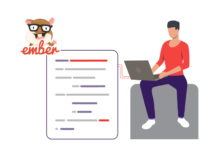Buying a home is a dream of many. However, the waiting tenure for home loan repayment can be something to think and worry about. To ensure that your financial income can meet the EMI requirements, several factors come into consideration, like the property’s market value and, most importantly, the home loan interest rates.
Most aspiring homeowners tend to look for lenders offering the best interest rates but don’t know how to find or get one. Of course, comparing the loan offers through your online home loan calculator can help you find the principal and interest amount. But, how to get the best or lowest possible interest rates? Check these points below for know-how.
1. Boost Your CIBIL Score
If you want to buy a home right away, shaping your finances can become challenging. So, you must plan ahead and delay your search for properties until you have a clean and strong financial portfolio. To be precise, the better your CIBIL score, the lower will be your home loan interest rate. So, pay off all your outstanding debts and credit card balances to boost your CIBIL score.
2. Pay a Higher Amount as Down Payment
In general, you have to pay a minimum of 20% of the property value as a down payment, whereas the rest, 80% of the value, is paid by the bank through the home loan. The more you pay as a down payment, the lower your repayment amount and the lesser interest you’ll pay during the loan tenure. Moreover, the higher the down payment, the lower the interest rate.
3. Get Your Income and Employment History Details
The lender will ask you to submit documents proving two consecutive years of your employment and steady income. It helps them make sure you’re capable of repaying the loan amount for the long tenure.
For instance, if you’re a salaried individual, the lender will ask you for tax returns for the last two years to cross-check your income statement. They will also verify your employment status with your employer to check how long you’ve been working there. If the lender finds there are any gaps in your last two employment years with an unstable income, they will become reluctant to approve your home loan application.
However, if you’re a self-employed individual who wants to get a home loan, then be ready to pay a higher interest rate than what they offer online. Those home loan interest rates are for applicants who stand correct with their creditworthiness, have steady, verifiable income, and have an excellent CIBIL score.
For self-employed individuals, lenders will ask their income tax returns for the last two years with a signed statement, balance sheet, profit/loss statement, and other documentation from a certified chartered accountant.
4. Determine Your Debt-To-Income Ratio
Lenders focus more on your overall debt in comparison to your gross monthly income. They check your income and employment history to determine your debt-to-income ratio. This ratio calculation is crucial for determining your home loan interest rate. If you can submit proof of income for a full-documentation home loan, then you’ll enjoy competitive interest rates and terms.
During the ratio evaluation process, lenders consider that individuals with a higher debt-to-income ratio will be more likely to have defaulted in their loan repayment. So, they tend to approve applications with a front-end ratio (housing ratio) no higher than 28%. The lower the DTI ratio, the lower the interest rate will be.
Final Thoughts
So, to ensure the best home loan interest rates, you’ll have to start working long before applying. The two best ways to get a low-interest rate are paying a sizable down payment and having an excellent CIBIL/credit score. So, follow this comprehensive guide and take a step closer to making your dream home a reality.
































